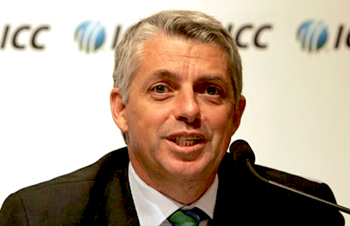Feb 11: The International Cricket Council had a "far better idea" of the people involved in match-fixing and would do everything in their power to ensure the "sickness" of corruption did not affect the World Cup, Chief Executive Dave Richardson said on Wednesday.
The sport has been blighted by reports of match-fixing in recent years, though Richardson said the governing body's Anti Corruption and Security Unit (ACSU) had been working with local authorities to ensure it did not influence the Feb. 14-March 29 event in New Zealand and Australia.
"I think the preparations the anti-corruption unit have put into this tournament, far exceed previous tournaments," Richardson told a media conference in Christchurch, also attended by local organising committee head Therese Walsh and New Zealand Cricket Chief Executive David White.
"They have a far better idea who these people are that travel the world and try to influence players, umpires and curators to get some sort of benefit on the betting side."
The ACSU's head Ronnie Flanagan said last week that fans would be able to watch the tournament "with confidence" it would be free of corruption.
Richardson, who said the ACSU had been working with law enforcement in both Australia and New Zealand for about three years, added that security around teams and officials would make it very hard for them to be approached by fixers.
"I think we are in the best place ever in terms of fixing," the former South Africa wicketkeeper added. "We have made it very difficult for them to approach players."
The ICC had also noticed a change in attitude from players over the last 12 months, Richardson added, with even innocuous contact being reported to the anti-corruption unit.
"The players have been tremendous over the last couple of years, indeed the last 12 months, in acknowledging their responsibility in fighting the sickness in the game," he said.
"They realise the threat does exist. The fight is against those corrupt guys who travel the world rather than the players."






Comments
Add new comment